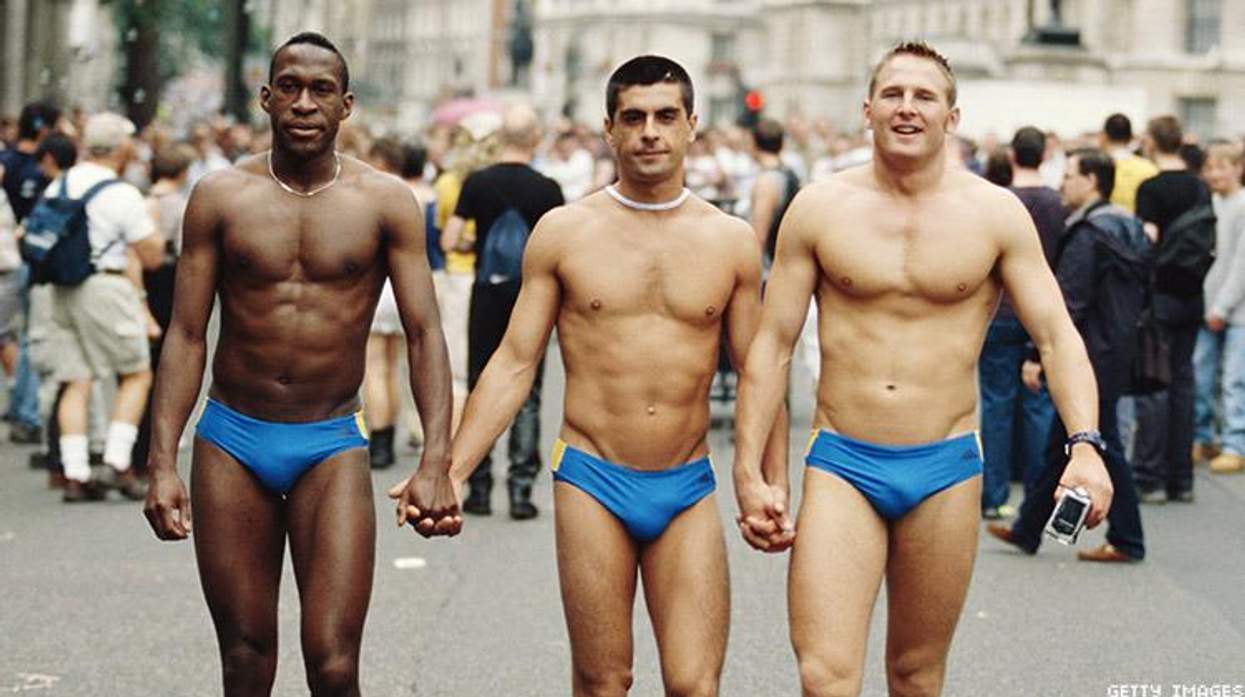I think one of the things that we have been grateful for during this period of isolation is the Tiger King. Outside of the coronavirus, what on earth would we be talking about if Joe Exotic had not lived such a rollicking life? And of course since we can't get enough, Netflix is giving us a final episode this weekend, airing the eighth and presumably last episode of the series that will feature interviews with Joe Exotic's husbands -- past and present.
Part and parcel of this decadent drama is the three-way marriage Joe Exotic entered into with his two partners at the time, John Finlay and Travis Maldonado. Talk about a marriage that didn't look to be clearly made in heaven, and one that probably blighted the term throuple.
Tiger King isn't the only Netflix hit that features a throuple. Elite is a Spanish series with hot high school students who go clubbing every night. If you haven't seen it, that about sums it up, and I won't go further, so no spoiler alerts; however, the show also features a throuple. In this case, it involves one of the central characters, Polo, who is a murderer -- and in his second throuple -- Valerio, a guy who is a heavy drug user and dealer, and Cayetana a sweet but very deviously dishonest female.
Again, we're not talking about the innocent creme de la creme of throuple participants.
If things come in threes -- pardon the salacious pun -- then we also have the recent incident with former Congresswoman Katie Hill, who resigned because of irregularities with her campaign, but who had to endure, what to her was an unwanted revelation of her involvement in a throuple.
All of these throuples are being depicted on television and in the media as scandalous, dramatic, sordid and vagabondized, giving a not so glowing impression of the relationship dynamic. The portrayals are less than flattering. Which begged the question, are we seeing an evolution of throuples in the media the same way we did with lesbians and gays in the 1950s and '60s, who were represented in similar fashion? As melodramatic, disreputable vagrants?
For some help in untangling these three threads, I turned to Dr. Joe Kort, a leading expert on sex and relationships, and the author of numerous books about same-sex relationships and gay sex.
My first question to Dr. Kort was to see if he agreed that while the concept of three-person relationships was becoming more widespread, the media may be depicting the concept in a less than favorable light.
"Erotophobia is what I believe this is about just as it was about gays and lesbians in the '50s and '60s," Kort explained. "Erotophobia is basically the irrational fear and disgust of sex. In the case of gays and lesbians it was the fear and disgust of same-sex sex."
Kort went on to say that while we are a monoganormative culture with deep religious roots, things might be changing with perceptions about sex, and the idea of throuples threatening the ideal and gold standard of monogamy. "It scares people to think you can love more than one person and be able to stay together," he said. "We insist on believing that it is always about 'cheating' and 'infidelity' to reinforce monogamy."
"The cultural belief is that you can only love me if you only choose me. If there is romantic and emotional interest in another person than it negates me," Kort added. "If this were true than we could not love more than one child. But we understand that parents can love all their children. The love may be different for each one but the love is still there. Just like with throuples."
In the same sense, Kort emphasized that consensual non-monogamy is seen as dangerous, so the media is more likely going to depict throuples as perilous characters. "It is seen as degenerative, so producers might be more inclined to make them degenerates. Infidelity, more than one person in the eyes of many, is criminal so they make the characters criminal."
When I brought up the question about the resignation of Rep. Katie Hill, and why the "shame" of being in a throuple may have played a part of her downfall, Kort felt that the whole issue in her story was sexualized, rather than trying to convey an understanding that it was also about love and romance.
"When people hear the word 'gay' (or 'bisexual') they often sexualize the person and project adult sexuality. That is why people object to the idea of a gay toddler," Kort delved. "It isn't the gay identity. It is the juxtaposition of gay sex they are imposing, so [Hill] is seen as putting her 'private' erotic life out there rather than seeing it as part of her identity."
With Elite, I asked Kort if he could think of any reason why the throuple characters are all depicted as criminals. "Again, it's erotophobia and monoganormtivity. The images of being criminal are clearly giving the public the message there is something wrong with this. It is alien to viewers since most people don't know nor understand throuples. This is true even among therapists and even gay therapists."
With the most recent example of a throuple being on Tiger King, I wondered if that relationship, depicted oddly and sordidly in the documentary, would detrimentally affect the way society perceives throupling?
"Yes, it does have an effect. The only thing that will help is having more and more people coming out as throuples, giving a face and name to it that isn't connected."
"For me, I remember images like in Midnight Cowboy, where a gay man hires a male escort and has a picture of his mother on the nightstand," Kort revealed. "Or Boys in the Band." It wasn't until the 1982 movie Making Love that I saw myself as a gay man, giving me permission to know I was okay."
Wherever you stand on throupling, be prepared to hear more about it, this year and beyond, as it becomes more prevalent in pop culture, not only on television, but in real life with people like actress Bella Thorne coming forward about being in multiple, polyamorous relationships. "The good news for throuples is that young people are still engaging in it openly and have the internet to share the positive images with each other," concluded Kort.
With throuples, you either endorse them, oppose them, or don't care, so I guess there are three ways to perceive them. How fitting.
John Casey is a PR professional and an adjunct professor at Wagner College in New York City, and a frequent columnist for The Advocate. Follow John on Twitter @johntcaseyjr.





































































Charlie Kirk DID say stoning gay people was the 'perfect law' — and these other heinous quotes